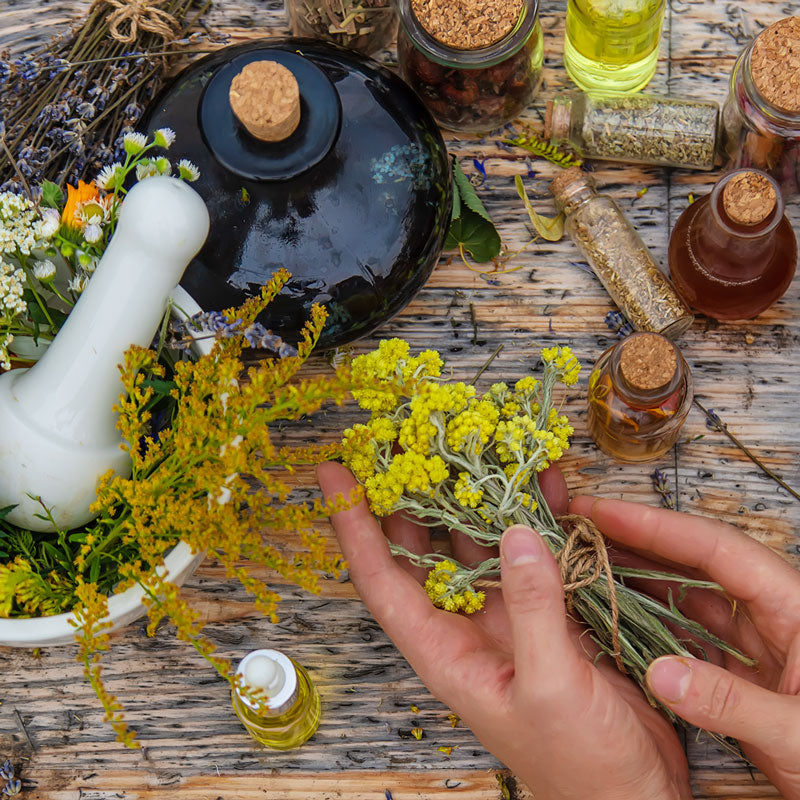Top 25 Herbal Ingredients That Support Digestive Health

A well-functioning digestive system plays an important role in overall well-being, and for centuries, herbalists around the world have turned to plants and botanicals to support gut comfort. From easing occasional bloating to providing gentle daily support, herbs have held a central place in both traditional and modern herbalism. In this guide, we’ll explore 25 herbal ingredients historically used for digestive wellness and how they’ve been prepared and incorporated across different cultures.
Herbal Ingredients Traditionally Used to Support Digestive Comfort
Aloe Vera – Traditionally applied for soothing internal and external tissues and promoting hydration.
Basil – Commonly used in culinary and herbal traditions to promote digestive ease and calm the senses.
Catnip – Used historically for promoting relaxation and gentle digestive support.
Chamomile – A staple in herbal teas, often enjoyed for calming and settling the stomach.
Chickweed – Traditionally included in herbal preparations for its gentle cooling properties.
Cinnamon – Often used in folk traditions to support digestive warmth and balance.
Dandelion – Celebrated in herbalism for its traditional role in digestive and liver-supportive preparations.
Elecampane – Used historically in herbal systems to support respiratory and digestive function.
Fennel – Traditionally used to ease occasional bloating and as a culinary digestive aid.
Ginger – Valued for its warming properties and long history in promoting digestive harmony.
Juniper – Included in traditional herbal blends aimed at digestive and urinary tract support.
Lemon Balm – Historically used to support emotional and digestive ease.
Lemongrass – Common in Southeast Asian herbalism for digestive tonics and aromatic teas.
Licorice Root – Used in traditional systems to support throat comfort and gastrointestinal balance.
Marshmallow Root – Known for its demulcent qualities and use in traditional gut-soothing teas.
Mint, Common – A classic ingredient in digestive blends and teas, valued for its refreshing quality.
Mountain Mint – Used in folk traditions for its aromatic and supportive qualities.
Oregano – Featured in Mediterranean herbalism for both culinary and wellness applications.
Peppermint – Historically favored for soothing digestion and refreshing the palate.
Pink Peppercorn – Traditionally included in warming and aromatic blends.
Plantain – Known in folk herbalism for its soothing effects on skin and internal tissues.
Rosemary – Used in both cuisine and herbal formulas to invigorate and support digestion.
Sage – Revered in traditional practices for its warming and digestive-supportive qualities.
Thyme – Found in herbal traditions for its aromatic and comforting effects.
Yarrow – Commonly used in traditional herbal blends for its cooling and toning properties.
Many of these time-honored herbs can be enjoyed in teas, meals, or homemade tinctures. Alcohol-based tinctures made with 200 proof food grade ethanol offer a way to extract and preserve both water- and alcohol-soluble compounds, creating a long-lasting, concentrated herbal solution. Whether you’re exploring single-ingredient tinctures or crafting custom digestive blends, high-purity ethanol ensures clean, consistent results.
Disclaimer:
This content is for educational purposes only and does not constitute medical advice. No health claims are made. Please consult a qualified healthcare professional before using herbal preparations, especially if pregnant, nursing, or taking medication.

































